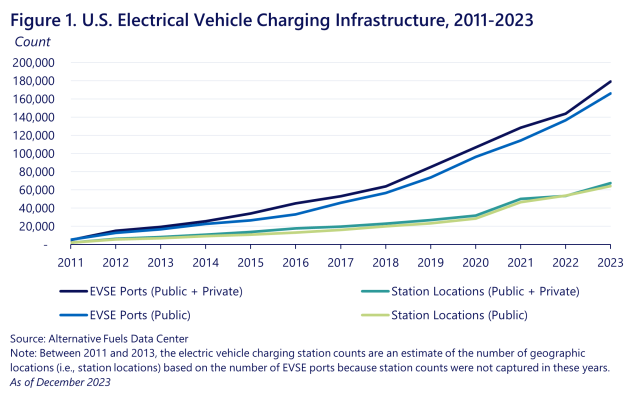- Joined
- Dec 13, 2013
- Messages
- 13,060
- Reaction score
- 5,247
Congrats to Muricans for such an amazing feat of civil engineering!
President Biden has long vowed to build 500,000 electric vehicle charging stations in the United States by 2030. Those stations, the White House said, would help Americans feel confident purchasing and driving electric cars, and help the country cut carbon pollution. But now, more than two years after Congress allocated $7.5 billion to help build out those stations, only 7 EV charging stations are operational across four states. And as the Biden administration rolls out its new rules for emissions from cars and trucks — which will require a lot more electric cars and hybrids on the road — the sluggish build-out could slow the transition to electric cars.


